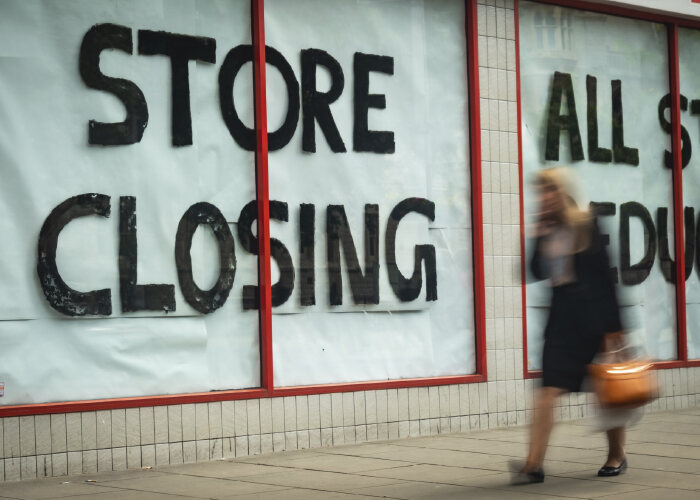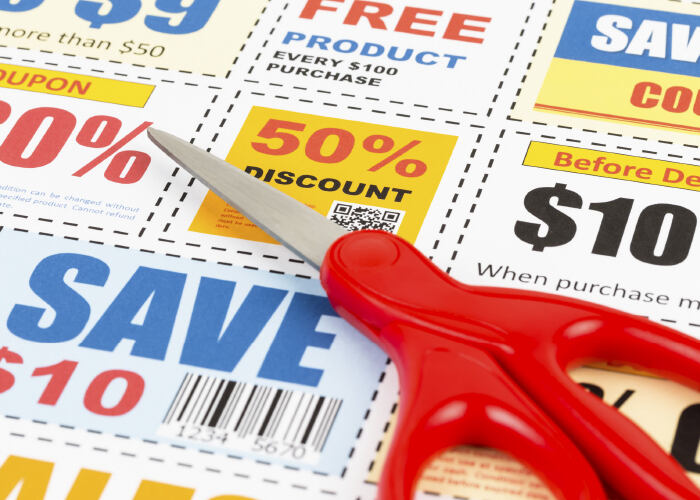By David Rogers
Why Successful Shops Follow Their Own Path
Is running with a pack the safest place to be as a shop owner?
After all, things are about to get much harder. In a matter of weeks, the economic forecast has deteriorated from crossing fingers and hoping that a recession might not happen to there now being a 100% chance of a recession in 2023.
Drivers have noticed, and car counts have already started to drop across the country in shops that weren’t using marketing to actively drive high-quality customers who value maintaining their vehicles.
Running with a pack starts to look appealing in times like these. The coming months will require hard, quick decisions to survive and grow, and operating your shop the way that most other shop owners are running theirs might seem like a sure way to weather the coming storm.

But is it really the safest place to be? The answer depends on your goals.
If you must follow a pack, don’t follow the largest one. The largest pack never moves as fast or lifts as high because it’s weighed down by the sheer number of low performers it must drag along.
The largest pack, for instance, hears that the newspaper is running an automotive issue and buys up the ad space. If other shops are going to be there, they should be there, too! It’s cheap and convenient, and it works for all those other shops, doesn’t it?
Which really is a powerful question. After all, being part of a pack means you’re not alone. Walmart is one of the largest companies on the planet precisely because people want to follow the pack. If most of the world can shop at Walmart and can get by, and most shop owners can use the cheap, mediocre solution and survive, what’s the problem?
To answer that question, consider a backyard.
More specifically, consider putting a pool in your backyard. The cheap, mediocre solution is a $14.99 shovel from the nearest Walmart. After all, everyone else is perfectly fine with the $14.99 shovel in their tool shed, so what’s wrong with using that same model to dig the hole in your backyard?

The answer, of course, is how things look at the end of the first day, when your blisters have blisters, the shovel isn’t sharp enough to cut through dirt and the handle is starting to crack. You got through the day, sure, but was the cheap, popular option really worth it?
What if you bought better? What if you got a nicer shovel…or maybe rented an earthmover instead? How much more effectively could you accomplish what you set out to do?
Really, this is the crux of the matter. The cheap shovel is self-evidently a bad idea in this situation because better tools exist. But that’s true of the other examples I’ve given too. Making the same marketing decisions as the crowd should be just as self-evidently bad for the exact same reason: when better options exist that can lead to less work and better results, it does not make sense to make the cheap, comfortable decision.
Animals run in packs or schools or pods not because there’s wisdom in the crowds, but because predators can eat some of those animals, but they can’t eat all of them. Animals cannot set goals and create intelligent strategies to achieve them, so their only remaining choice is to do what their fellow pack members are doing and hope they don’t get eaten.
A recession is coming quickly and will pick off many members of the pack that settle for the illusion of safety in numbers.

Remember though, shop owners are not animals, and you don’t have to settle for those grim odds.
More than 20 years ago when I first came to work for Terry Keller at Keller Bros. in Littleton, CO, they were doing nearly everything wrong with their marketing. Terry and his marketing guy were fully invested in running with the pack and doing what everyone else was doing. The advertising was covered in coupons and discounts, and new customers were trained from the get-go that they could always expect to pay the cheapest price.
Like so many shops, their marketing was leading to more customers rather than better customers. The average repair order was $70, and the shop was jamming through 70 tickets each day. And if the relentless stress and constant grind weren’t enough, the shop was also constantly in danger of the car count drying up in the next economic downturn.
That was no way to live. Terry, his family and everyone in that shop deserved better. And when the shop started using the right tools and intelligent strategies, that’s exactly what they got: the shop grew by more than $2 million in the next two years by switching to marketing that attracted better customers instead of just more customers.
There is disaster lurking just outside the firelight for shop owners who have chosen the safety of the pack. Inflation is eroding savings, uncertainty is scaring customers and a recession looms in the new year.
You don’t have to wait and hope you don’t get eaten, though. You don’t have to trust in the false security of the crowd. But you do have to evaluate your strategy.

What tools are you using right now? Is your marketing attracting better customers or simply more of them? Has your strategy led to customers who value maintaining their vehicles or those that follow coupons and discounts? It’s not often that we can see the approaching storm and have the luxury of time to evaluate and improve our strategy, but that grace period is quickly running out.
Perhaps more importantly, what pack are you running with? Are they pushing you to raise your performance and commitment? Are they moving quickly, decisively and with purpose to prepare, survive and grow?

No good can come from staying comfortable, and settling for the safety of mediocrity will be the end of a lot of shops next year. You can choose to succeed and grow while your competition accepts their fate.
Times are about to get tougher, but you can survive and grow! Set better goals, surround yourself with the tools and support that will help you achieve those goals, and while your competition struggles, you can grow and succeed!
Read the full article here on Shop Owner Magazine

